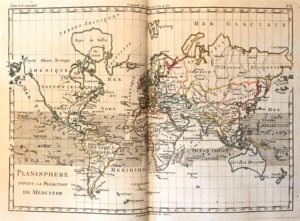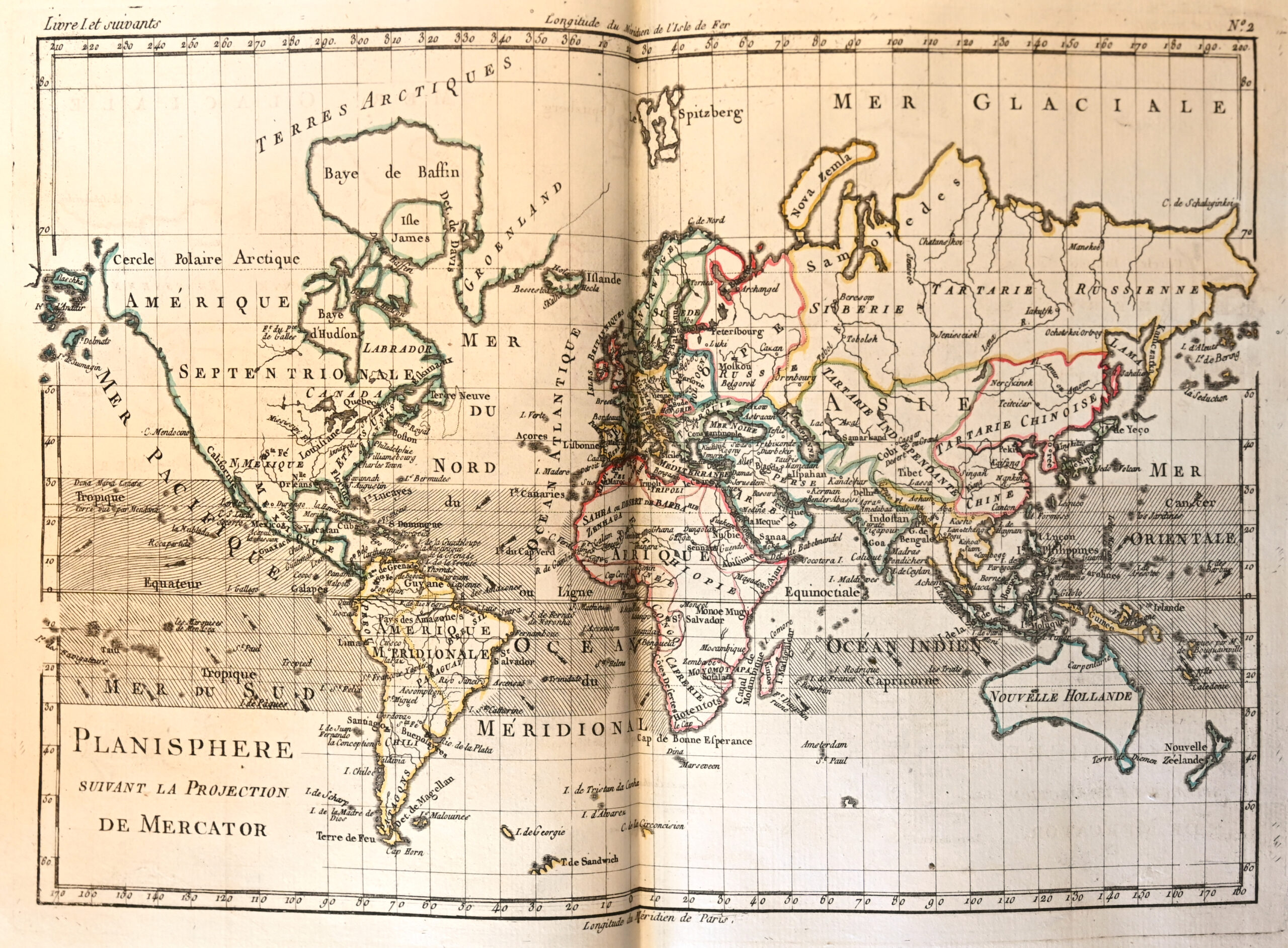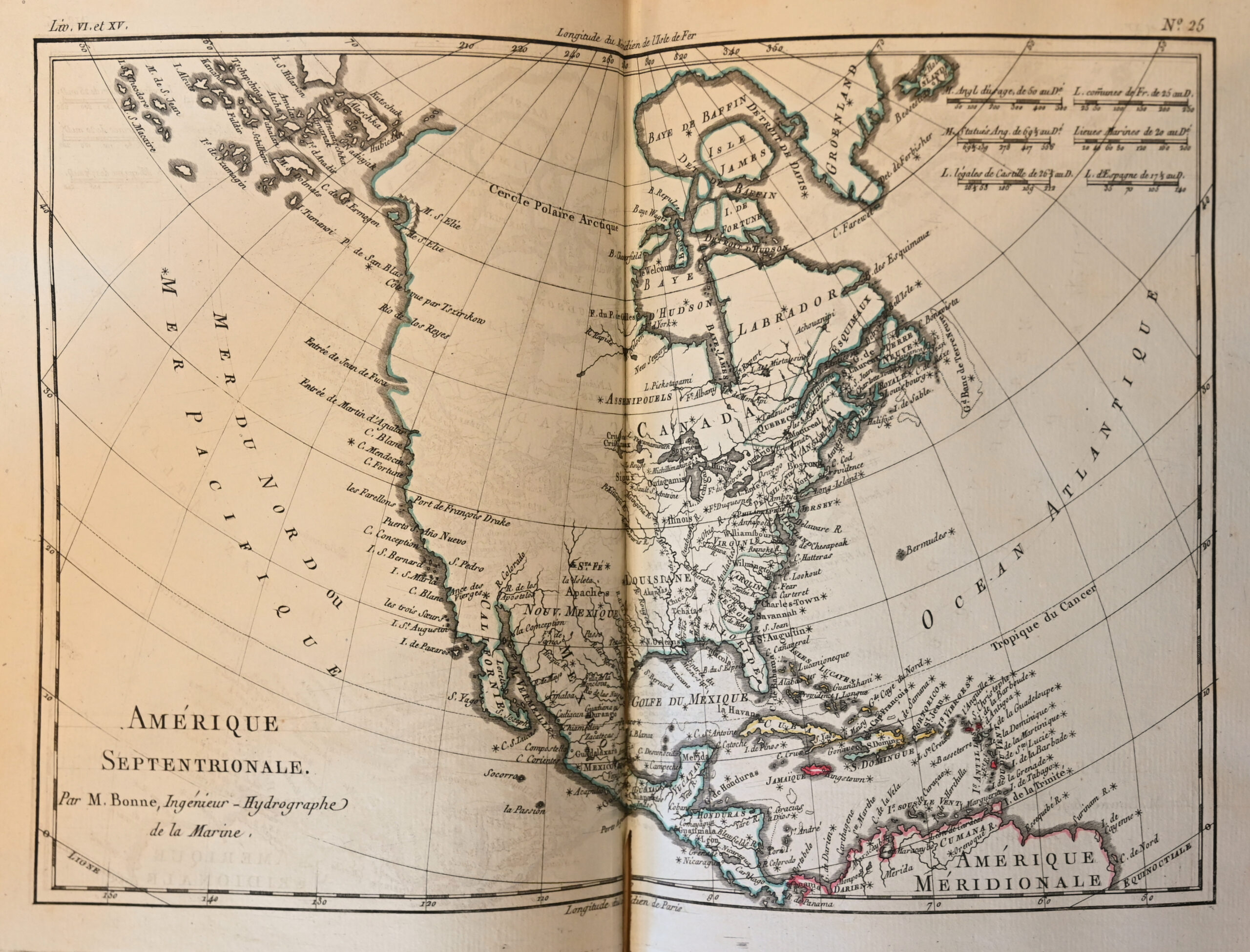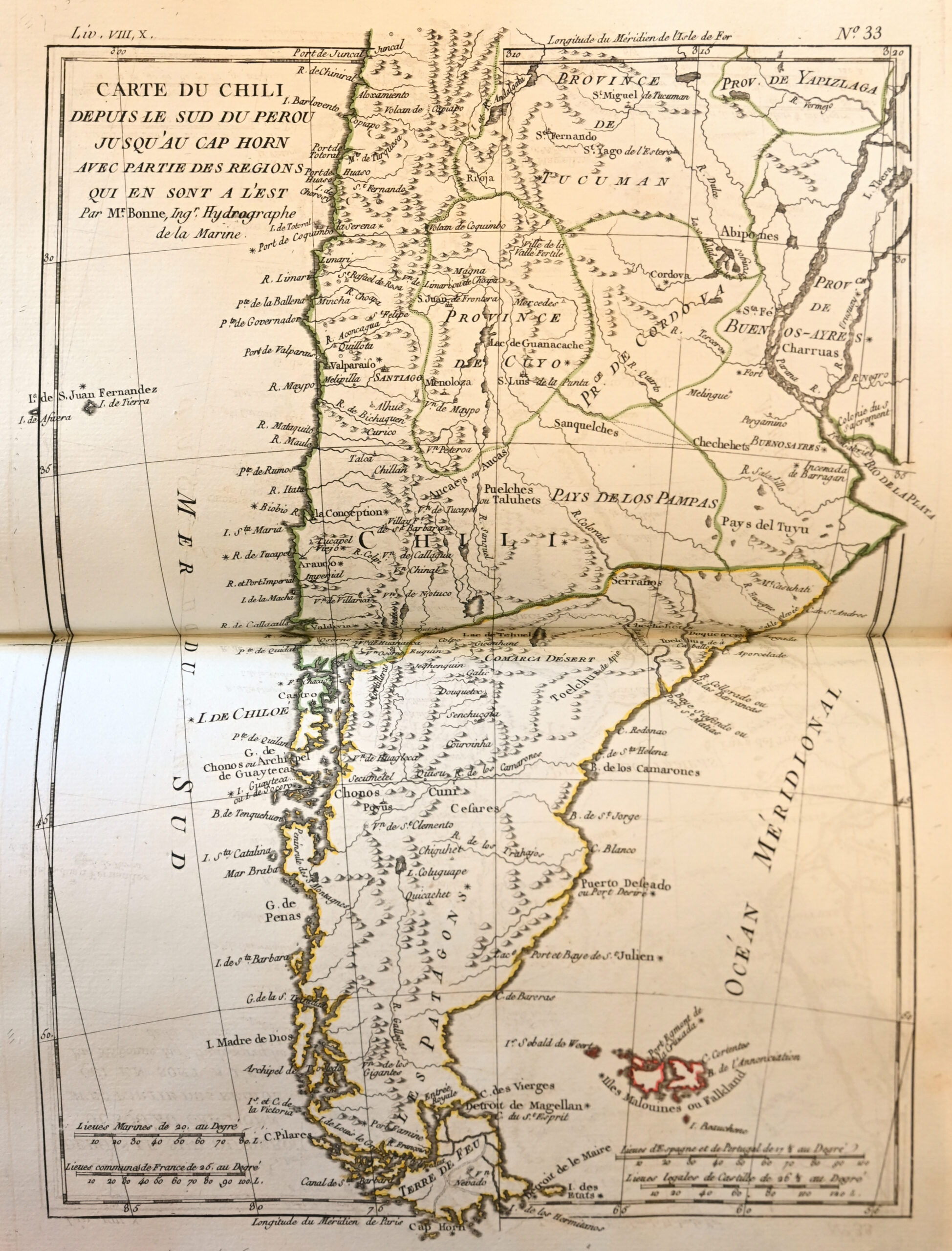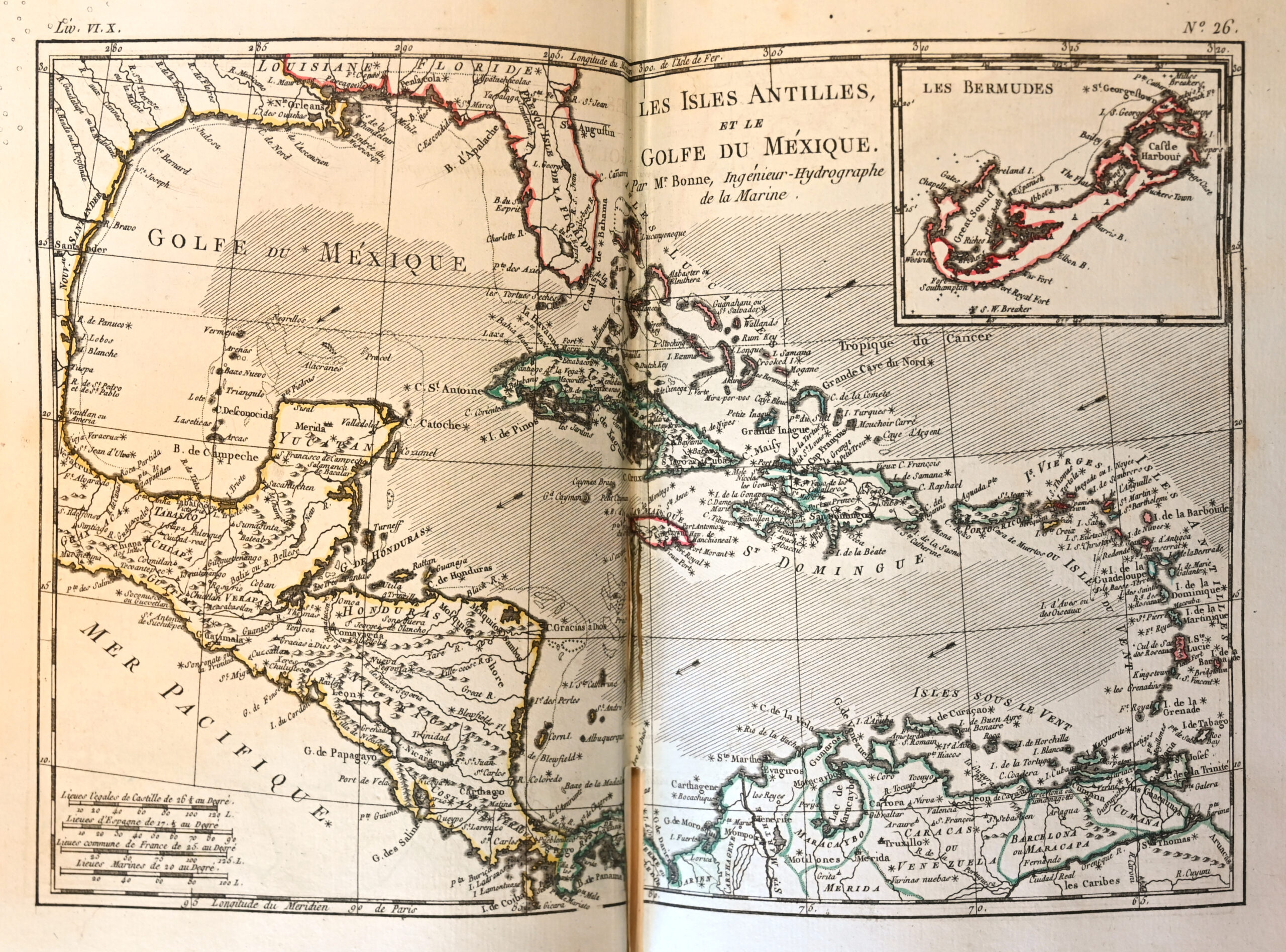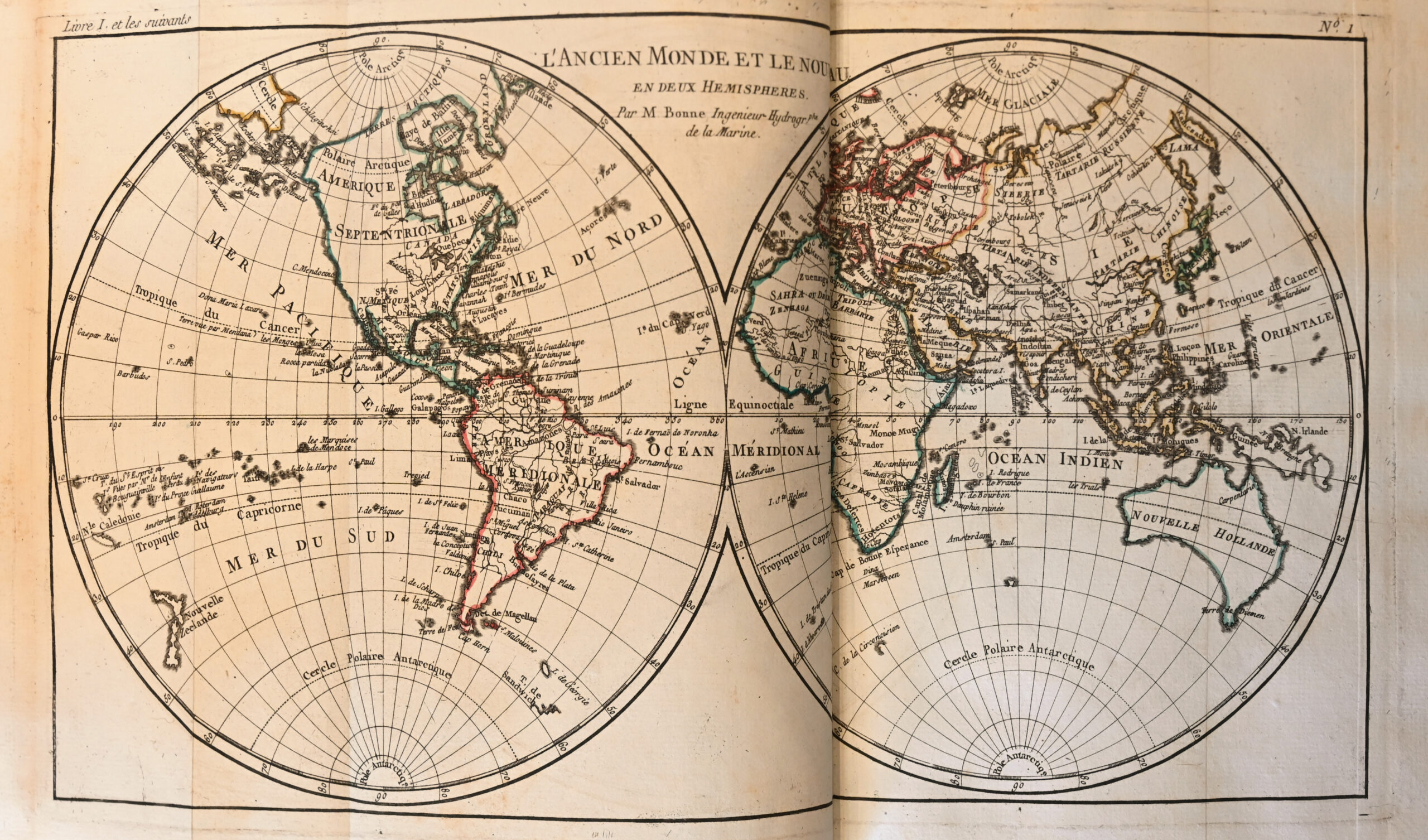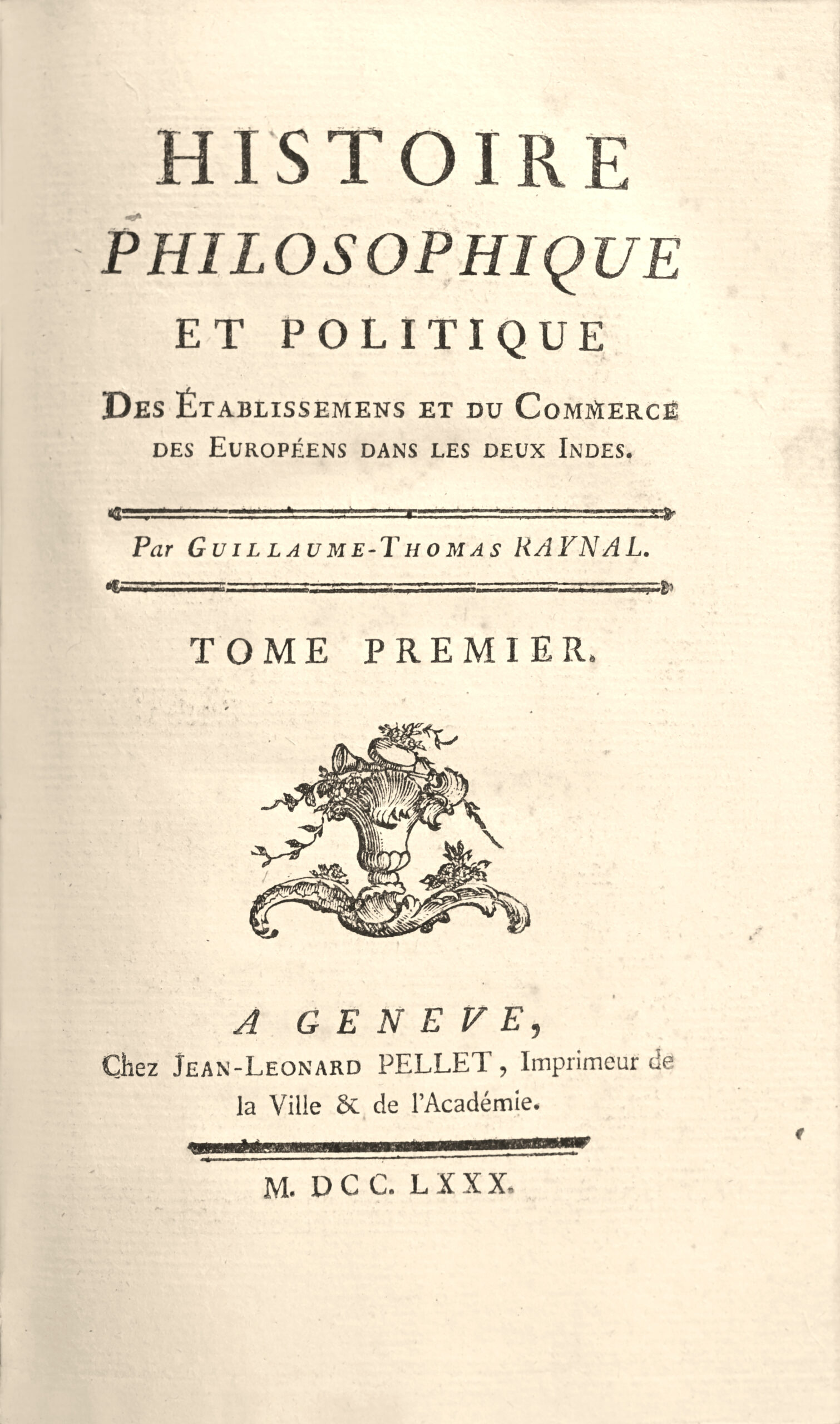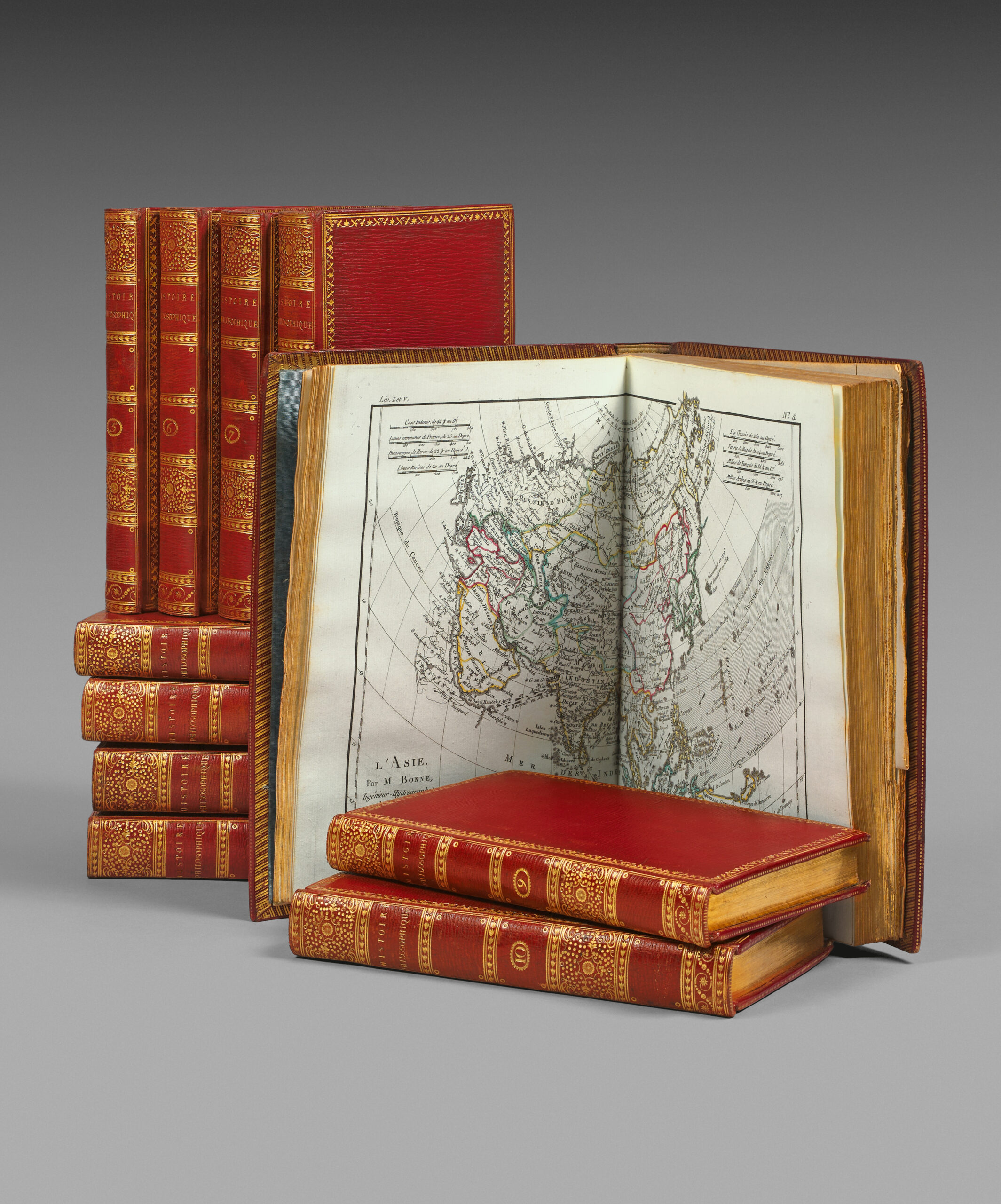Geneva, Jean-Leonard Pellet, 1780.
10 8vo volumes and 1 4to atlas volume: I/ 1 portrait, xvi pp., 532 pp., (2) blank leaves ; II/ (2) ll., 1 engraving, viii pp., 582 pp. ; III/ (2) ll., 1 engraving, vii pp., 580 pp. ; IV/ (2) ll., 1 engraving, viii pp., 472 pp. ; V/ (2) ll., 1 engraving, vii pp., 405 pp. ; VI/ (2) ll., 1 engraving, vii pp., 484 pp., pp. 281–304 bound twice ; VII/ (2) ll., 1 engraving, table pp. v–xvi, 558 pp. ; VIII/ (2) ll., 1 engraving, viii pp., 548 pp. ; IX/ (2) ll., 1 engraving, table pp. v–viii, 412 pp. ; X/ (2) ll., 1 engraving, table pp. v–vi, 538 pp.
Atlas: (2) ll., 28 pp., 1 folding map, 49 double-page maps numbered 1 to 49 with a plate 17 bis, and 23 tables including 12 folding and 1 on double-page. Red morocco, gilt double fillet and roll border on covers, flat spines richly decorated with special tools, inner gilt dentelles, all edges gilt. Contemporary binding.
202 × 123 mm ; 257 × 203 mm for the atlas.
“First edition” of this “key work of the crisis of the ancien régime,” filled with revolutionary rhetoric, much of it written by Diderot.
Bibliographers emphasize the extreme importance of this third “original” edition, so extensively rewritten and radicalized by Diderot that it constitutes an entirely new and revolutionary work, condemned by the parliament, which brought both fame and exile to its author.
Precious example of the octavo-format edition published simultaneously with the quarto edition.
Complete copy with 10 frontispieces, including a portrait by Cochin and 9 illustrations by Moreau engraved by Dambrun (1), de Launay (6), Delignon (1), Romanet (1) and Simonet (1), and with the atlas containing 50 plates numbered 1 to 49, including one 17 bis, and 23 folding tables.
“Jesuit born in Aveyron in 1713, Abbé Raynal moved to Paris and soon left the Church for Philosophy. He contributed to the Encyclopédie, the Mercure de France, and the Correspondance littéraire, and authored commercial or propaganda writings inspired by the French government: Histoire de Stathouderat (1747), Histoire du Parlement d’Angleterre (1748).
He was commissioned to write a history of colonization that could have been just another compilation, had he not gathered around him a brilliant group of collaborators—d’Holbach, Naigeon, and above all Diderot—and had the commercial project not transformed into a major political and philosophical treatise.
A second expanded edition appeared in 1774 and a third, signed by raynal and radicalized by Diderot’s interventions, in 1780. This led to repression and fame for Abbé Raynal: the Parliament condemned the book, the author was forced into exile, and assumed the persona of the persecuted philosopher across Europe before being allowed to settle in Marseille. The revolutionaries were ready to welcome the septuagenarian as a master of thought and action; they were more than disappointed—furious at the conservative tone of the man, who had been overtaken by his own work.”
Diderot was therefore one of the main contributors. “Under Raynal’s name, [he] gave full rein to his libertarian, oppositional, and denunciatory spirit. He abhorred intolerance, the Church’s influence in temporal affairs, and accepted only one universal morality: that which aims at the preservation and common happiness of the human species…” (Raymond Trousson).
“The Histoire des deux Indes in fact combines a conventional account of European exploration and commercial settlements with a sometimes violent denunciation of slavery and colonial exploitation. Administrative records and prior treatises alternate with passages of revolutionary rhetoric, often written by Diderot.” (Michel Delon, En français dans le texte, Dix siècles de lumière par le livre, no. 166).
This treatise, enriched with literary passages of remarkable quality, was a resounding success and was reprinted nearly ten times at the end of the 18th century.
Scholarly criticism considers it one of the key works in the collapse of the Ancien Régime.
A superb copy, in perfectly fresh condition, printed on bluish-tinted dutch paper, bound in very elegant contemporary red morocco.
See less information
